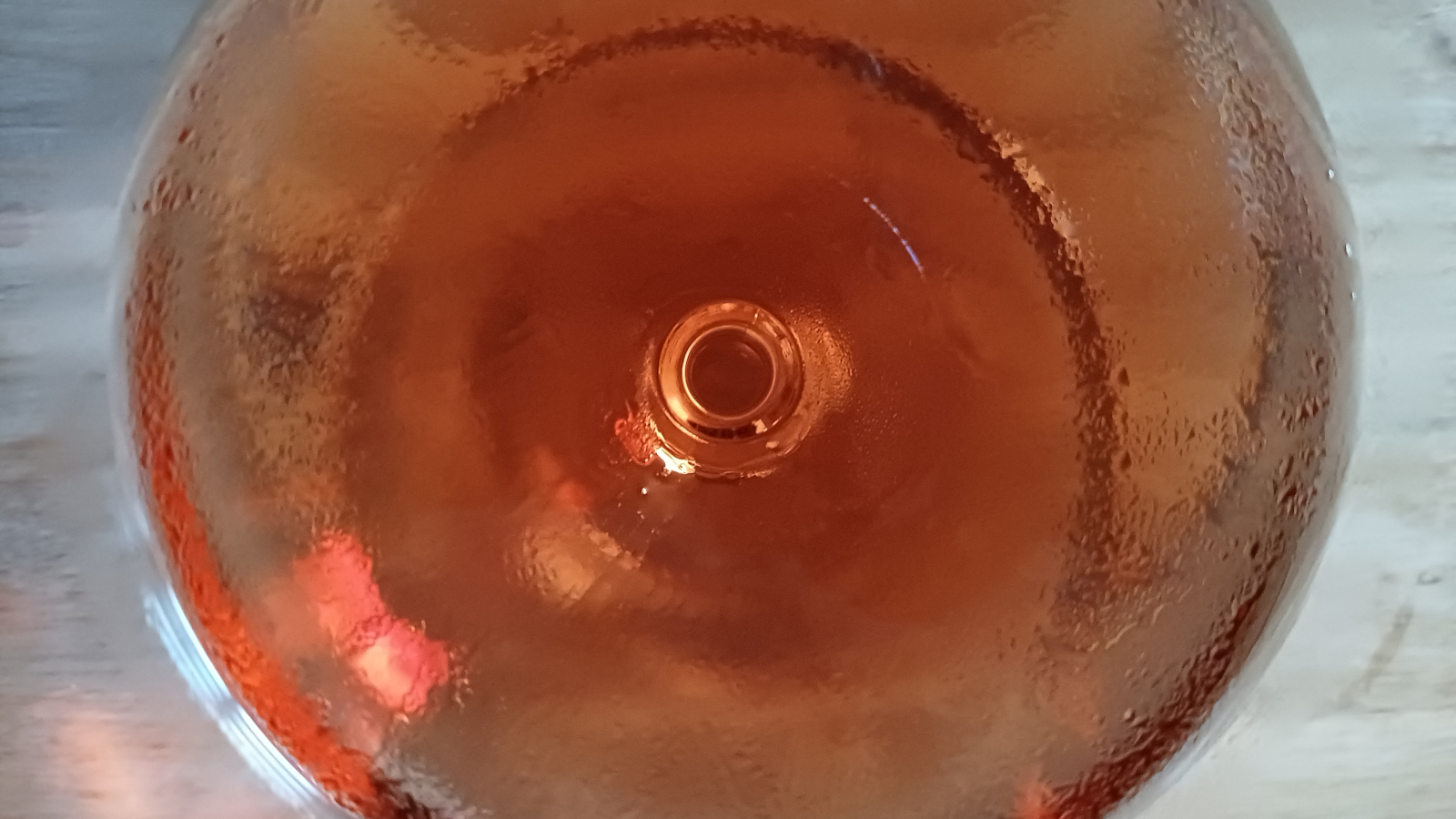Innovation Grauburgunder
100 years of Bickensohl Weinvogtei
5 May 2024
Werner Elflein
 Photo: weinfreaks.de
Photo: weinfreaks.deWhether Pinot Meunier (Schwarzriesling, Müllerrebe) is a mutation of Pinot Noir or whether the reverse is true has not yet been clarified beyond doubt. It is therefore still unclear whether Pinot Noir or Pinot Meunier can lay claim to the title of the forefather of all Burgundy grape varieties. What is certain, however, is that Pinot Noir gave rise to the white grape varieties Pinot Blanc (Weißburgunder, Weißer Burgunder) and Pinot Gris (Grauburgunder, Grauer Burgunder) through colour mutations.
When comparing Pinot Blanc with Pinot Gris, the grape variety with the grey-reddish berry skins is often attributed a higher quality. Unfortunately, Pinot Gris often produces similarly insignificant wines as Pinot Blanc, despite the high potential of both grape varieties.
Pinot Gris has been native to Germany since the mid-16th century. It first travelled from Burgundy, possibly also from Champagne, to Lake Balaton in Hungary in 1375. From there, Lazarus von Schwendi (1522-1573) brought it to Alsace and the Kaiserstuhl.
In 1711, the Speyer merchant and pharmacist Johann Seger Ruland discovered the unknown grape variety in an overgrown garden he had purchased. Ruland was so taken with the wine produced from the grapes in the garden that he propagated the vines and traded them with great commercial success. This is how Pinot Gris got its official name in Germany, Ruländer, which it still bears today.
Pinot Gris places high demands on viticulture. Unintentional damage to the berry skins leads to premature juice release, and the vines are very susceptible to numerous fungal and viral diseases. Pinot Gris feels particularly at home in a warm location. It loves chalky soils. The grapes quickly reach a high must weight and are easily attacked by botrytis due to the thin berry skins. The Ruländer thus earned a reputation for producing sweet, opulent white wines with flavours of apple, baked apple, melon, pear, almond, walnut and honey.
When the demand for dry wines increased in the early 1980s, many German winegrowers changed their harvesting strategy. They now harvested the Ruländer grapes earlier and in a healthy, botrytis-free state. This resulted in leaner, dry wines with a moderate alcohol content, but also more subtle flavours, which were better suited as universal food companions. In order to leave the image of the chubby Ruländer behind them, they named the grape variety Grauburgunder on their bottle labels from then on. The first Ruländer to be marketed as Grauburgunder was bottled by the Bickensohl winegrowers' cooperative. Its innovative managing director, Christian Henninger, is said to have toyed with the idea as early as 1980. In 1985, the first Grauburgunder went on sale: a 1982 Bickensohler Herrenstück Grauburgunder Qualitätswein trocken. Henninger may have had his eyes on southern Europe, as Pinot Grigio imported from Italy was a real commercial success in Germany at this time.
The Winzergenossenschaft Bickensohl has since changed its name to Bickensohl Weinvogtei. However, the cooperative, which was founded in 1924, remains committed to its traditional values and follows its own ten commandments when producing its Pinot Gris. This year, 2024, the Weinvogtei is celebrating its 100th birthday. We congratulate and raise our glasses with an unusual, distinctly rosé-coloured 2020 Grauburgunder “SK”. Rosé-coloured thanks to a seven-day mash fermentation of two-thirds of the must, which extracted plenty of colour from the skins of the grey-reddish berries. According to German wine law, which still refuses to recognise the existence of orange wines, it is nevertheless a white wine. And as such, for the Baden quality wine inspectors, it was – a bad joke – defective in colour. The Bickensohl cooperative therefore had no choice but to declare the wine as Deutscher Landwein without specifying the individual vineyard.
Incidentally, there are currently no plans for a successor to the 2020, which the Weinvogtei sees as a project wine from the young cellar team. The Bickensohl's first orange will therefore remain the only one for the time being. The edition is strictly limited to around 600 bottles, which are sold exclusively via the vinotheque and the Weinvogtei webshop.
The wines at a glance
Symbols
| ⧛ | The rating of the wine reflects the mean value from a tasting by our jury. |
| ⚖ | The wine was evaluated in a blind tasting. |
| ⛬ | The wine was tasted as a barrel sample or before an official test number (Amtliche Prüfungsnummer or Staatliche Prüfnummer) was issued. |
| ▲ | The wine exhibited a sensory abnormality during our tasting. This does not necessarily have to be a qualitative defect or a wine fault. In the case of a qualitative impairment, a devaluation or rejection was made depending on the type and severity of the defect or wine fault. |
Bickensohler Weinvogtei
Neunlindenstraße 25
79235 Vogtsburg im Kaiserstuhl
Germany
Phone: +49 7662 9311-0
Fax: +49 7662 9311-50
Internet: www.bickensohler.de
E‑mail: wein@bickensohler.de
Natural winewhitedryPinot Gris
2020 Grauburgunder SK Landwein trocken
Germany
Lot 03/23 • 13.5 % alcohol